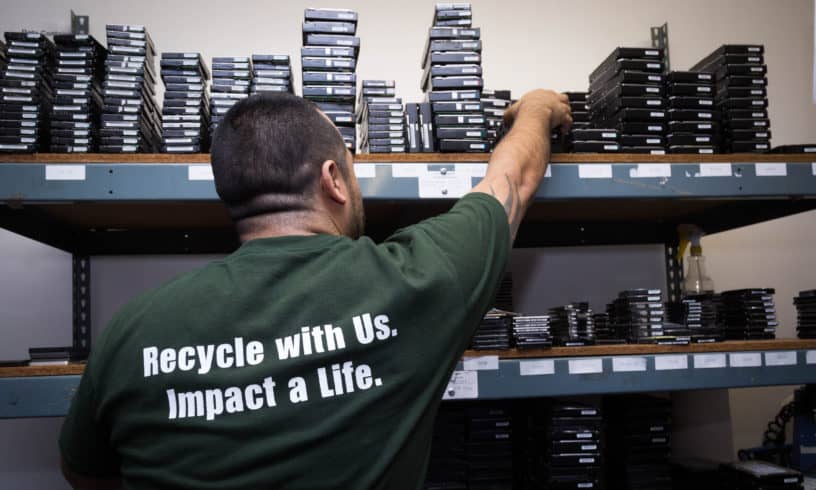We sometimes get asked “Why do you charge to recycle my electronics? Aren’t they valuable?”
That may be the case for items such as computers, smartphones, tablets, and servers, which we do not charge to recycle. However, the majority of e-waste does not have a reuse market and costs more to recycle than it is worth. In California especially, growth in labor and other operating costs related to changing product streams have far outpaced the recoverable value from electronics.
Below are a few of the trends contributing to the rising cost of responsible recycling. Despite these challenges, we are more committed than ever to providing secure, reliable and cost-effective services while creating jobs for people facing systemic barriers to employment.
Smart Devices and the Internet of Things
Think about how many types of electronic devices store and/or transmit personal data: computers, smartphones, printers, home security systems, personal assistants (Google Home, Amazon Echo), etc. As a recycler of these devices, we invest in specialized equipment, training, and insurance to securely manage the data risks on your behalf.
Product Design and Lifecycle
Remember when you could replace your cell phone battery yourself? Now, smartphones and tablets often have their batteries glued in behind components that are fastened with proprietary or “security” screws. Such tactics can be part of a planned obsolescence strategy, intentionally making items less repairable and less recyclable in the hopes that you just buy the latest model.
Hazardous Materials
Electronics contain lead, mercury, cadmium, and other toxic materials that can pollute our soil, water, and air. Meanwhile, Lithium batteries have become the scourge of electronics repair and recycling facilities due to their propensity to catch fire. Proper recycling techniques and equipment are necessary to protect people and the environment from these hazards.
Labor Rates
Labor is often the largest cost for electronics refurbishers and recyclers. In our case, personnel costs are over 60% of our total expenses and minimum wage in Los Angeles has gone up 78% since 2013. This is great for our staff and we support living wage efforts, but it does affect our price competitiveness with out-of-state companies and exporters who send e-waste to lower-wage nations.
Stagnant or Declining Commodity Prices
Prices for key metals (e.g., steel, aluminum, copper, gold) recovered from electronics have stayed relatively flat or even declined in nominal terms since 2013. At the same time, cheap oil and natural gas have made it hard for recycled plastics to compete with virgin plastics. More recently, upheaval in trade policy (tariffs, trade restrictions, etc.) has dramatically impacted demand for recycled metals and plastics.
